News Releases / 2022
-
July 27, 2022
Rengo Concludes a Green Loan Agreement
Rengo Co., Ltd. announces that it has concluded a syndicated green loan agreement with Sumitomo Mitsui Banking Corporation in line with the “Green Loan Principles 2021” (*1) established by international organizations for the financial industry and the “Green Loan and Sustainability Linked Loan Guidelines 2020” established by Japan's Ministry of the Environment.
A green loan is a loan used by a company or other entity to raise funds needed for projects that contribute to solving environmental issues (“green projects”), and the proceeds are allocated exclusively to green projects. Green loans are also characterized by transparency, as they are made secure through managing the tracking of funds and reporting after financing.1. Overview of the Green Loan
Date of Agreement July 27, 2022 Arranger/ Agent Sumitomo Mitsui Banking Corporation Originated Amount 5 billion yen Loan Term 8 years (July 29, 2022, to July 31, 2030) Use of Funds (1) Installation of a new biomass boiler and an RPF (*2) production facility
(2) Establishment of a new plant for cellulose microbeads that are a 100% biodegradable material derived from wood pulpLenders
(in order of the Japanese
kana syllabary)The Iyo Bank, Ltd., The Oita Bank, Ltd., The Kiyo Bank, Ltd., The Gunma Bank, Ltd., San ju San Bank, Ltd., The Shizuoka Bank, Ltd., The 77 Bank, Ltd., The Joyo Bank, Ltd., The Chiba Bank, Ltd., The Nanto Bank, Ltd., The Hachijuni Bank, Ltd., The Fukui Bank, Ltd. Evaluation organization Japan Credit Rating Agency, Ltd. Assigned rating The highest rating, “Green 1” *Regarding eligibility as a green loan, a “second party opinion” (*3) has been obtained from a third-party institution, Japan Credit Rating Agency, Ltd. 2. Environmental Targets and the Significance of Initiatives
The Rengo Group is promoting ESG management under its medium-term vision, “Vision115.” In “Eco Challenge 2030,” a set of environmental targets established for 2030, the Group defined six core issues—creation of a carbon-free society, improvement of energy efficiency, creation of a recycling-oriented society, creation of products that solve environmental and social issues, water risk management, and value chain management (downstream)—and set specific goals for each issue (*4).
The new biomass boiler and RPF production facility and the new plant for 100% biodegradable cellulose microbeads derived from wood pulp are green projects designed as part of the environmental investment toward achieving these targets. The proceeds from the green loan will be fully allocated to these green projects.3. Overview of the Green Projects and Relevance to the SDGs
(1) Installation of a new biomass boiler and an RPF production facility
The new biomass boiler to be installed within the premises of Rengo's Tonegawa Division (Bando-shi, Ibaraki Prefecture) will utilize woodchips and RPF as its main fuel sources. It is expected to reduce CO2 emissions by converting fuels from LNG. Also, an RPF production facility will be installed to accept waste plastics from Group companies and their surrounding areas. It can partially produce its own RPF, thereby leading to the proper disposal of industrial waste.

(2) Establishment of a new plant for cellulose microbeads that are a 100% biodegradable material derived from wood pulp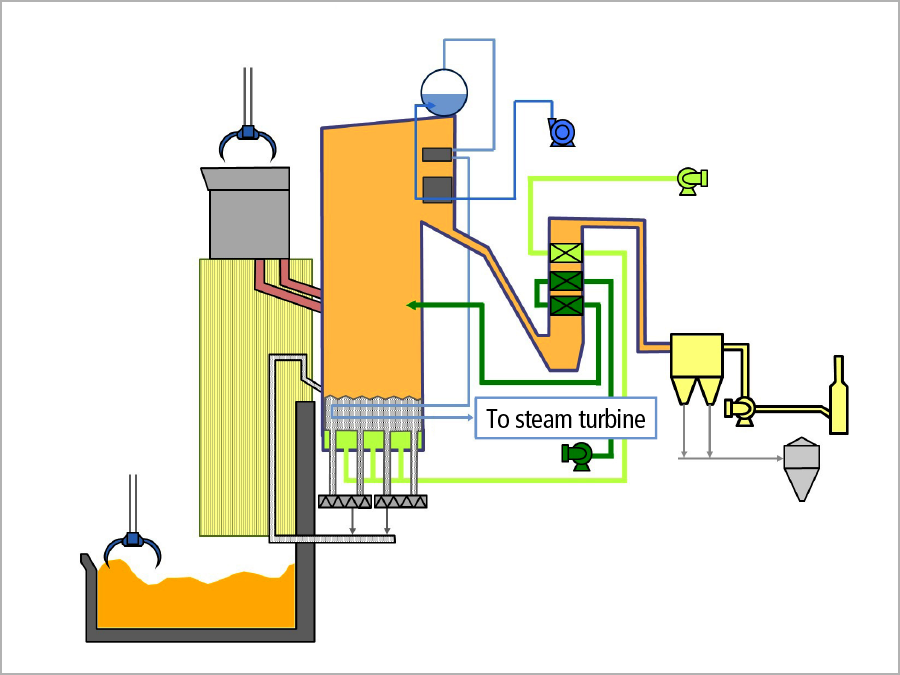
Schematic view of biomass boiler
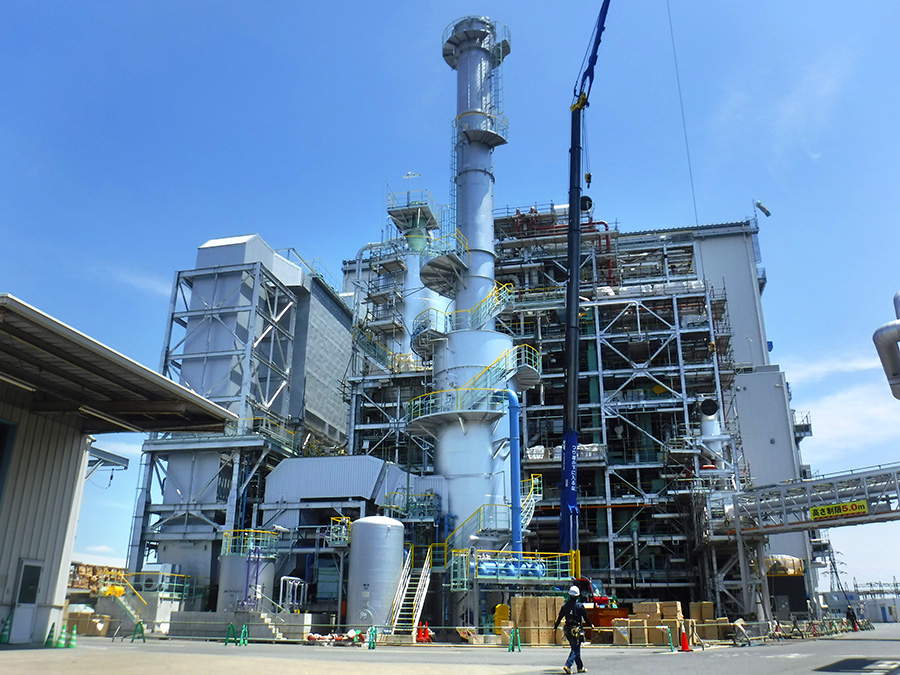
Biomass boiler
A new cellulose microbeads plant was established within the premises of Rengo's Kanazu Mill (Awara-shi, Fukui Prefecture). As cellulose microbeads are biodegradable in the natural environment, they are expected to become an alternative to microplastic beads. The new plant also utilizes a new technology (continuous production line) to reduce chemicals intensity and electricity intensity.

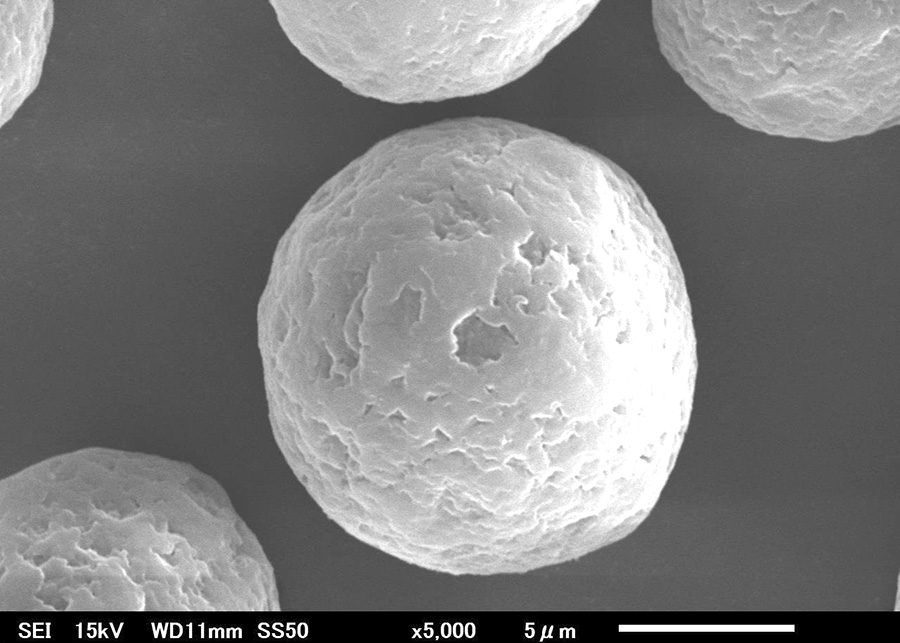
Cellulose microbeads
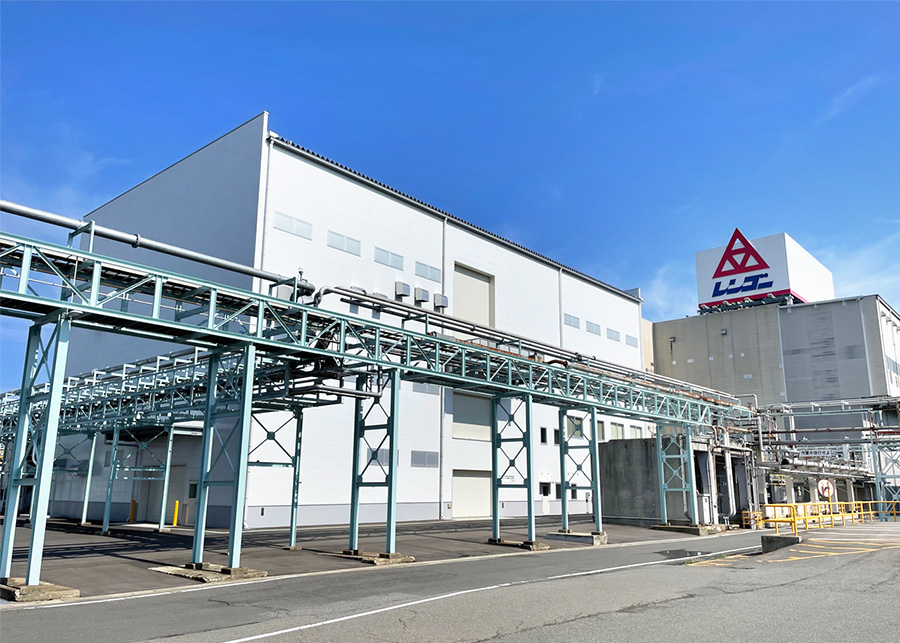
Cellulose microbeads plant
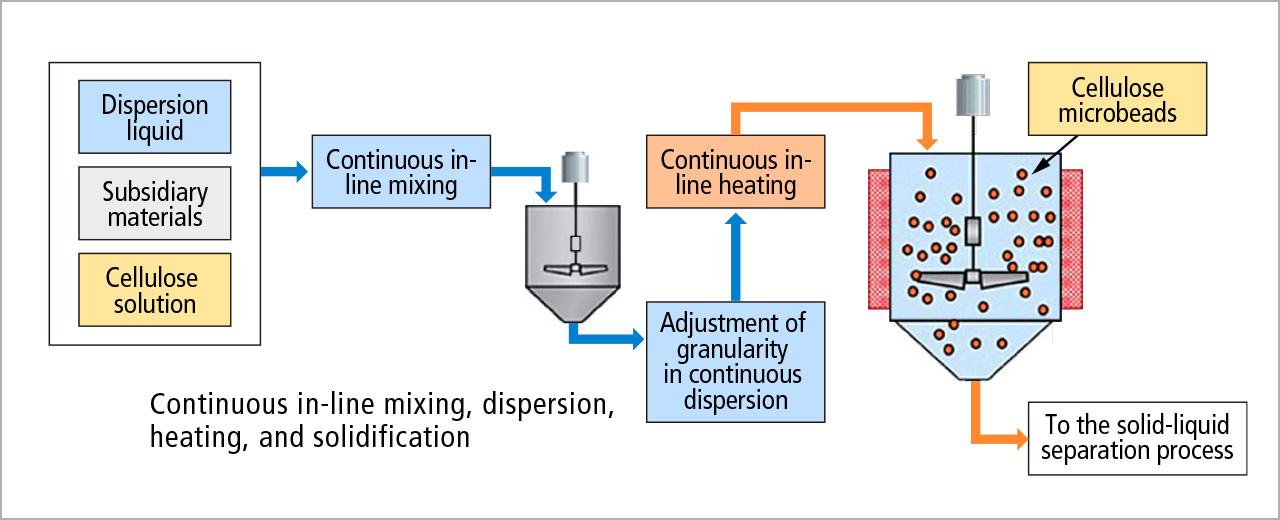
Schematic view of the cellulose microbeads production process
4. Reporting
Status of the Allocation
of FundsUntil all funds raised are allocated to applied green projects, the status of the allocation of funds will be disclosed on an annual basis on the company's website. Impact Reporting Until the full amount of the funds raised is repaid, the progress of the green project and its environmental improvement effects will be disclosed on an annual basis on the Company's website. Indicators for
Environmental Improvement
Effects(1) The volume of electricity generated from the biomass boiler
(2) Production volume of cellulose microbeads
(3) The volume of industrial waste accepted
(4) Reduction of CO2 emissions in the Tonegawa Division as a whole compared to the reference year (FY2013)With the aim of becoming the world's best general packaging manufacturer group as a “packaging provider,” the Rengo Group will continue to make ceaseless efforts to realize a sustainable society. -
(*1)
-
The Green Loan Principles have been announced by international organizations for the financial industry, namely the Loan Market Association (LMA), the Loan Syndications and Trading Association (LSTA), and the Asia Pacific Loan Market Association (APLMA).
-
(*2)
-
RPF is short for Refuse paper & Plastic Fuel. It refers mainly to a high-grade solid fuel primarily composed of recovered paper and waste plastics, which are fairly difficult to recycle among industrial wastes.
-
(*3)
-
For Japan Credit Rating Agency, Ltd.'s website, please visit:
https://www.jcr.co.jp/en/greenfinance/ -
(*4)
-
For Rengo's website, please visit:
https://www.rengo.co.jp/english/
-